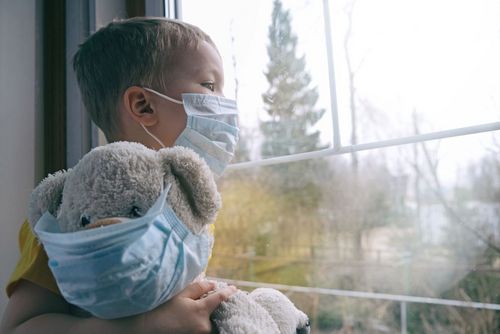How are the children doing after more than a year of the pandemic? We don’t really know it because we can’t hear them. But we suspect that some are experiencing major psychosocial and educational repercussions, the impact of which could continue to be felt in the more or less long term.
“Missing three months of school in the spring of 2020, then experiencing several class closures during the year 2020-2021 can have effects on learning, and the scientific literature that emerges on the subject shows that this is the case among most vulnerable groups ”, explains Sylvana Côté, director of theObservatory for the education and health of children, which has just obtained five million dollars from the Quebec Research Fund – Society and Culture (FRQSC).
However, to know the consequences of the pandemic on learning, it is necessary to evaluate the latter. While some countries have maintained standardized tests, this is not the case in Quebec, where ministerial exams were canceled in 2020 and 2021.
–
Create data
Sylvana Cote
Credit: Vadim Daniel
–
–
–
–
In order to create data for comparison purposes, the Observatory therefore decided to have certain pupils take the ministerial examination in reading. In 2017, all the children who attended full-time kindergarten in Quebec – or about 80,000 students – had participated in the Quebec Survey on the Development of Children in Kindergarten, conducted by the Institut de la statistique du Québec (ISQ ). It is therefore these same young people, in the fourth year of primary school, who were targeted to take this exam. A call to all has been made to their teachers.
“We wanted to recruit 300 teachers, but no less than 600 answered the call; so, with the Ministry of Education, we are trying to accommodate everyone so that at the end of June nearly 12,000 nine-year-old students in all regions of Quebec have taken the ministerial reading test ”, indicates Mme Côté, who is a full professor in the Department of Social and Preventive Medicine at the School of Public Health at the University of Montreal and a researcher at the CHU Sainte-Justine Research Center.
These exams obviously don’t count towards the report card, so teachers motivate their students in other ways. “The reaction from schools is extraordinary and children are proud to create data for science,” says the researcher.
Once this data is created, we can compare it with the results of the 2019 ministerial test. “This will allow us to see where students are in different schools and different types of classes in reading, which is a crucial skill because that it has a great impact on learning in other subjects, ”she adds.
–
Intervene better with children
It was while reflecting on the revival of the post-pandemic economy in the summer of 2020 that the chief scientist of Quebec, Rémi Quirion, and the Quebec Ministry of Economy and Innovation realized that children would great needs.
“Economists run simulations to assess the influence of learning losses on countries’ GDP and the consequences can be major,” remarks Sylvana Côté. Since the pandemic has not hit everyone the same, socioeconomic inequalities are also likely to have widened markedly. We want to limit the effects of the pandemic as much as possible by setting up initiatives to support the development of the child. ”
Interventions can be of all kinds, such as the establishment of services, the implementation of prevention programs, the introduction of social innovations, etc. For example, the Ministry of Education is currently working on various remedial measures for young people, such as mentoring. “For the interventions to be well adapted to the needs of the students and therefore effective, it is necessary to know where the problems are and what their magnitude”, specifies Mme Side.
–
Interdisciplinary work
To tackle these major societal challenges, the Observatory team is working on four main areas: education, mental health and well-being, infection and immunity, as well as healthy lifestyles. The transversal axes are economic development and social innovation. Experts from different disciplines and different universities are therefore joining forces.
“With researchers in infectiology, immunology, biostatistics, education, economics, psychology and psychoeducation in particular, interdisciplinarity is really central in our work,” says the director.
The Observatory also works closely with the government, including the ISQ, to make a set of data accessible and more easily usable with a view to improving the development of interventions.
“We are fortunate to be able to count in Quebec on administrative data which concern the entire population, therefore without bias, for example on the state at birth, the care and services given, etc.,” indicates Mr.me Side. The scientific community and policymakers have long wanted this data to be used to improve the health of the population, and the pandemic has made this need even greater. There is an urgent need to act. ”
In the long run, this work could be of great value. “We will be able to compare the life trajectories of people exposed to the pandemic, and therefore understand the factors of resilience and the interventions that have worked best. It is valuable work for now and for decades to come. ”
–


